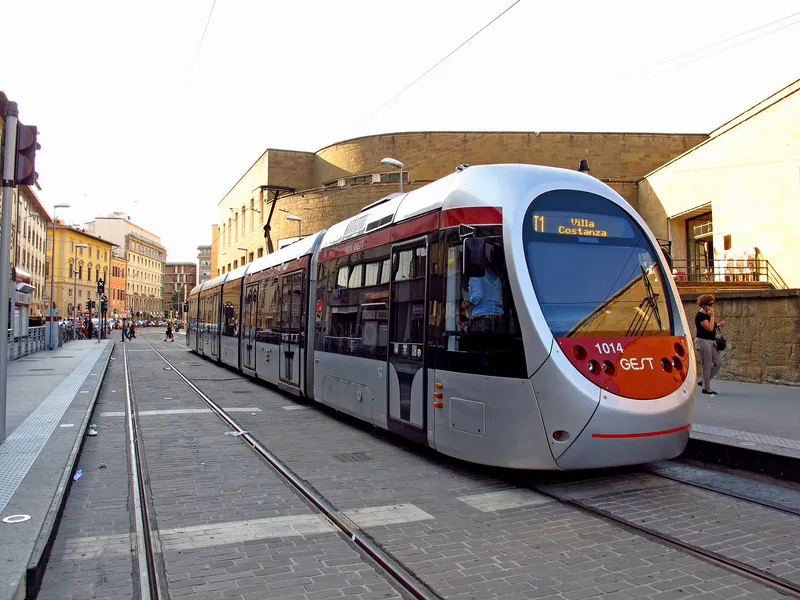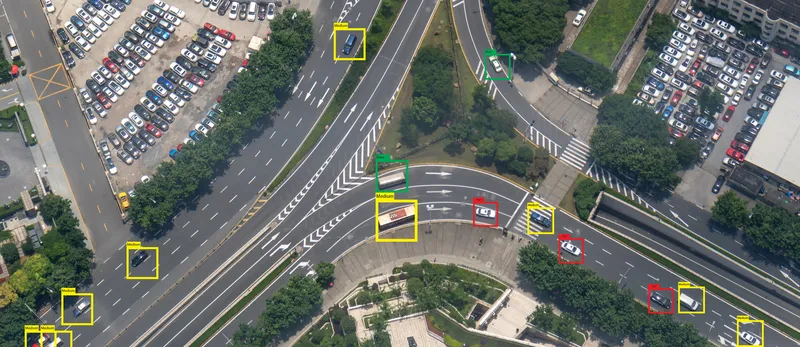Technology firm Indra is leading the R&D&i Transforming Transport project, which aims to demonstrate how the use of data may improve management and services rendered to clients in the logistics and transport sector, through 13 large-scale pilots in different countries and transport modes.
Funded by the European Commission under Horizon 2020 program, the project includes 47 partners from Finland, France, Germany, Greece, Ireland, Italy, Luxembourg, Netherlands, United Kingdom and Spain, including some of
March 21, 2017
Read time: 3 mins
Technology firm 509 Indra is leading the R&D&i Transforming Transport project, which aims to demonstrate how the use of data may improve management and services rendered to clients in the logistics and transport sector, through 13 large-scale pilots in different countries and transport modes.
Funded by the European Commission under Horizon 2020 program, the project includes 47 partners from Finland, France, Germany, Greece, Ireland, Italy, Luxembourg, Netherlands, United Kingdom and Spain, including some of Europe's infrastructure managers and transport operators.
The 13 pilot projects will be implemented in several countries and in different areas of transport, including roads, airports, ports, rail infrastructure, sustainable connected vehicles, integrated urban mobility and logistics. In each of these areas, new algorithms will be developed and tested, based on existing big data technologies that allow for integrating and analysing real data from diverse sources, developing transport patterns and exploiting these in a way that is most suitable for decision-making.
Valladolid in Spain will implement one of the pilot projects on urban mobility, while France will work on connected vehicles. A further pilot project in Greece will look at airport passenger flow, Great Britain will study rail transport, Portugal will execute a pilot on highways and Germany logistics at ports.
Indra believes the three main advantages that big data may contribute to the transport sector and which the Transforming Transport project will address are the improvement of efficiency, services to clients and the possibility of generating new revenues or business models.
It is calculated that the use of big data may improve operational efficiency of processes and services linked with transport by, at least 15 per cent, optimising the use of resources and reducing maintenance costs, fuel consumption or incidents, among others.
According to Indra, these technologies make it possible to offer a more personalised service adapted to the clients' needs, while also contributing to the optimisation of passenger flows, reducing waiting times and goods delivery and avoiding failed connections between different modes of transport, among other benefits.
The use and exploitation of data may also lead to new sources of income and even new business models, based on a better knowledge of travellers' preferences or travel patterns, for fields like tourism or advertising.
Indra is leading four Transforming Transport pilot projects, including collaboration with Adif and Ferrovial Agroman in a rail pilot project for the high-speed section between Cordoba and Malaga in Spain, where big data technologies will be used to improve the management of the line's maintenance works.
In the two pilot projects on smart roads coordinated by Indra, to be developed in Spain and Portugal with the collaboration of Cintra and Ci3, the goal is to validate the use of data to improve the management of the roads' capacity, reduce accidents, optimise available resources, decrease operating costs and mitigate possible traffic jams.
Indra also heads a pilot project at the Athens Airport which, based on big data, seeks to optimise operations for the airport and airlines, managing passenger flow, optimising check-in times, arrival to boarding gates or access to airplanes.
Funded by the European Commission under Horizon 2020 program, the project includes 47 partners from Finland, France, Germany, Greece, Ireland, Italy, Luxembourg, Netherlands, United Kingdom and Spain, including some of Europe's infrastructure managers and transport operators.
The 13 pilot projects will be implemented in several countries and in different areas of transport, including roads, airports, ports, rail infrastructure, sustainable connected vehicles, integrated urban mobility and logistics. In each of these areas, new algorithms will be developed and tested, based on existing big data technologies that allow for integrating and analysing real data from diverse sources, developing transport patterns and exploiting these in a way that is most suitable for decision-making.
Valladolid in Spain will implement one of the pilot projects on urban mobility, while France will work on connected vehicles. A further pilot project in Greece will look at airport passenger flow, Great Britain will study rail transport, Portugal will execute a pilot on highways and Germany logistics at ports.
Indra believes the three main advantages that big data may contribute to the transport sector and which the Transforming Transport project will address are the improvement of efficiency, services to clients and the possibility of generating new revenues or business models.
It is calculated that the use of big data may improve operational efficiency of processes and services linked with transport by, at least 15 per cent, optimising the use of resources and reducing maintenance costs, fuel consumption or incidents, among others.
According to Indra, these technologies make it possible to offer a more personalised service adapted to the clients' needs, while also contributing to the optimisation of passenger flows, reducing waiting times and goods delivery and avoiding failed connections between different modes of transport, among other benefits.
The use and exploitation of data may also lead to new sources of income and even new business models, based on a better knowledge of travellers' preferences or travel patterns, for fields like tourism or advertising.
Indra is leading four Transforming Transport pilot projects, including collaboration with Adif and Ferrovial Agroman in a rail pilot project for the high-speed section between Cordoba and Malaga in Spain, where big data technologies will be used to improve the management of the line's maintenance works.
In the two pilot projects on smart roads coordinated by Indra, to be developed in Spain and Portugal with the collaboration of Cintra and Ci3, the goal is to validate the use of data to improve the management of the roads' capacity, reduce accidents, optimise available resources, decrease operating costs and mitigate possible traffic jams.
Indra also heads a pilot project at the Athens Airport which, based on big data, seeks to optimise operations for the airport and airlines, managing passenger flow, optimising check-in times, arrival to boarding gates or access to airplanes.









